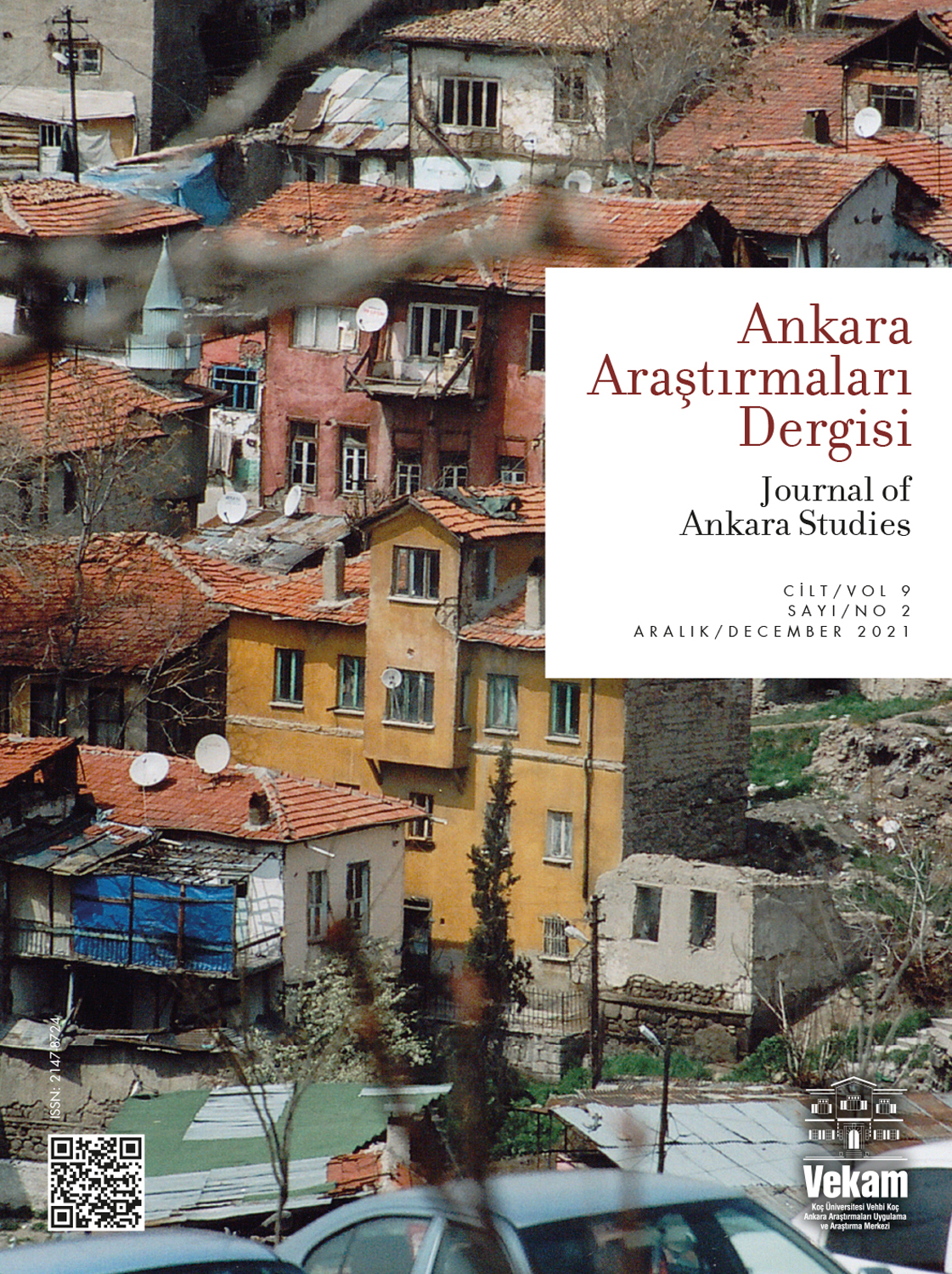Psychosocial Reflections on the Urban Poverty Experiences of Solid Waste Laborers: The Case of Ankara
Saitcan Güngördü, Nurettin ÖzgenAnkara University, Faculty of Languages and History-Geography, Department of Geography, Ankara, TurkeyThe new concept of poverty or urban poverty includes the disadvantaged status of people who are unable to obtain an equal share of various socio-spatial factors, particularly economic, in regards to daily life. Waste collectors are one of the main groups in the urban environment who are deprived of welfare, justice, and representation. This study aims to answer the questions of what psychosocial effects and other difficulties are faced by waste laborers, as well as how their reflections on their experiences and sense of belonging to the city has developed. The study population consists of three (3) metropolitan districts of Ankara (Altındağ, Çankaya, and Keçiören), and the sample group is comprised of seventy (70) waste workers who eke out an existence by collecting waste in these districts. The data obtained in the study and carried out in the form of face-to-face interviews, which is one of the qualitative research techniques utilised in this study, were analyzed through the use of descriptive and content analysis. The results obtained show that waste laborers experience urban poverty in their socio-spatial relations with regard to daily life. It was revealed that they were susceptible to certain spatial and psychosocial traumas, such as marginality produced by the new concept of poverty, inability to relate to urban space, exclusion and stigma. Various suggestions are made in the study to include waste laborers in the recycling sector, and so help them find solutions to the multiple disadvantages they face.
Keywords: Urban poverty, Recyling, Waste laborer, Spatial segregation, AnkaraKatı Atık Emekçilerinin Kentsel Yoksulluk Deneyimlerine İlişkin Psikososyal Yansımalar: Ankara Örneği
Saitcan Güngördü, Nurettin ÖzgenAnkara Üniversitesi, Dil ve Tarih-Coğrafya Fakültesi, Coğrafya Bölümü, Ankara, TürkiyeYeni yoksulluk ya da kentsel yoksulluk kavramı, başta ekonomik olmak üzere, gündelik yaşama dair çeşitli sosyomekânsal paylaşımlardan yararlanamayan insanların dezavantajlılık durumlarını içermektedir. Kentsel yaşam pratiğinde; refah, adalet ve temsiliyetten mahrum kalmış bu dezavantajlı insanların önemli paydaşlarından biri de atık toplayıcılarıdır. Bu bağlamda, ilgili çalışmada, atık emekçilerinin gündelik yaşamda karşılaştıkları zorlukların neler olduğu, kente dair deneyim ve aidiyetlerine ilişkin ne tür yansımalar ve psikososyal etkilerin geliştiği ile ilgili sorulara cevaplar aranmıştır. Araştırmanın evreni Ankara’nın üç (3) metropol ilçesi (Altındağ, Çankaya ve Keçiören); örneklem grubu ise, bu ilçelerde atık toplayarak yaşama tutunan yetmiş (70) atık emekçisinden oluşmaktadır. Nitel araştırma tekniklerinden yüzyüze görüşme şeklinde gerçekleştirilen çalışmada elde edilen veriler, betimsel ve içerik analizi tekniğiyle çözümlenmiştir. Analiz sonuçlarına göre, atık emekçilerinin kentsel yoksulluğu, gündelik yaşama dair sosyomekânsal ilişkilerinde de deneyimledikleri tespit edilmiştir. Yeni yoksulluk kavramının ürettiği marjinallik, kentsel mekânla ilişki kuramama, dışlanma ve damgalanma gibi birtakım mekânsal ve psikososyal örselenmelerin geliştiği belirlenmiştir. Çalışmada, atık emekçilerinin karşılaştığı çoklu dezavantajlılık durumuna çözüm üretmek adına, geri dönüşüm sektörüne nasıl dâhil olabileceklerine ilişkin çeşitli önerilere yer verilmiştir.
Anahtar Kelimeler: Kentsel yoksulluk, Geri dönüşüm, Atık emekçiliği, Mekânsal ayrışma, AnkaraManuscript Language: Turkish













